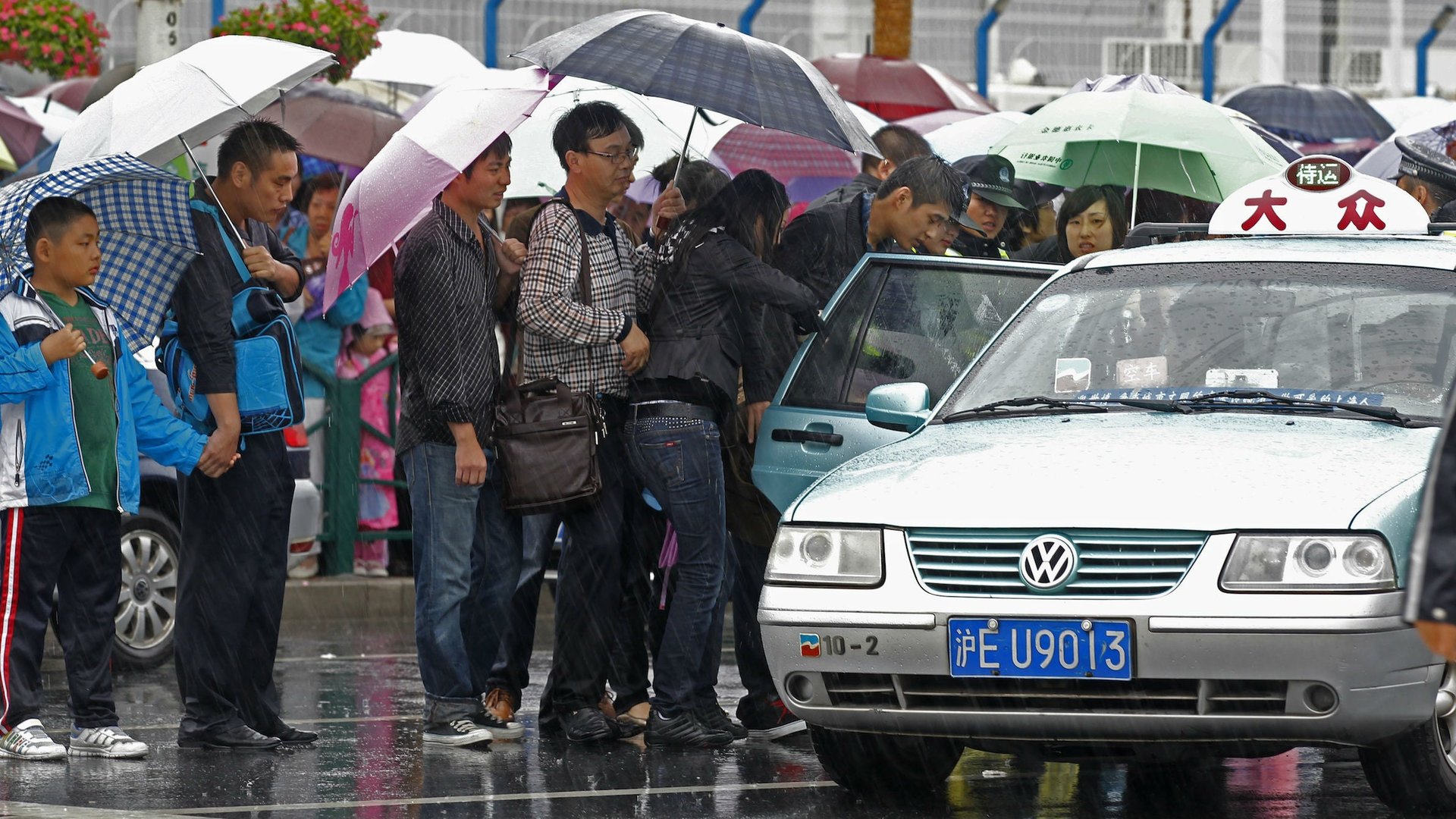China’s versions of Uber could fix city cab shortages
Here’s an unexpected consequence of China’s expanding middle class: It’s now harder to hail a cab in major Chinese cities. A few years ago, taxi drivers competed fiercely for passengers. In Beijing, a mere flick of the hand was often enough to get a hawk-eyed cab driver to pull over. Now, it’s frequently hard to find a ride in urban centers like Beijing, Shanghai, and Guangzhou, as more and more people can afford to take taxis but the number of cabbies hasn’t kept pace.


Here’s an unexpected consequence of China’s expanding middle class: It’s now harder to hail a cab in major Chinese cities. A few years ago, taxi drivers competed fiercely for passengers. In Beijing, a mere flick of the hand was often enough to get a hawk-eyed cab driver to pull over. Now, it’s frequently hard to find a ride in urban centers like Beijing, Shanghai, and Guangzhou, as more and more people can afford to take taxis but the number of cabbies hasn’t kept pace.
But China’s growing industry of smartphone app makers are devising ways to alleviate that hassle. Yaoyao Dache, a shake of the phone sends your location to cab companies, which then contact you with information about the nearest ride. With another app, Dudu Jiaoche, potential passengers enter in their location and destination for nearby cab drivers.
Didi Dache, which launched last year and is the best known of these apps, lets users send voice messages to cab drivers in the area and offers a shorter wait for users willing to pay up. Didi reportedly has 600,000 subscribers, and about 12,000 taxi drivers out of 66,000 in Beijing were using the app at the end of February. Here’s a video from China View explaining how Didi works:
But in the same way that the American taxi hailing app Uber has run into legal problems and opposition almost everywhere, so could some of these apps in China. As lawyer Qiu Baocheng tells China View, taxi fares are set by the authorities, and apps like Didi’s, which add to the fare, could be violating law. “The taxi company or business operators should take responsibility to improve the system in a way other than charging extra money,” Qiu says.
A possible drawback for cabbies is if the apps expand competition by giving residents the ability to also call on black cabs, drivers not working with a company, the People’s Daily points out. Moreover, if authorities hike cab fares in Beijing—as some have predicted (the government says it has no plans to)—demand for taxis could start to wane.